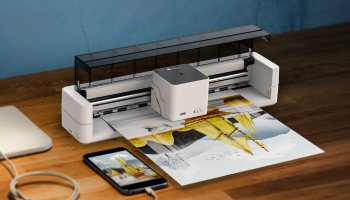Over the years, I have heard about countless ways to more easily and effectively peel a boiled egg. Anyone who has peeled enough boiled eggs knows how frustrating it is when you get an egg with a shell that just doesn’t want to come off. No matter how careful you are in that case, you end up with a pock-marked, crater-like egg missing half of its white. Sometimes, you encounter a tiny piece of shell you missed – yuck! For some reason I can’t figure out, crunching into a piece of egg shell makes me sick to my stomach. I imagine they’re actually good for you, or at the very least that they won’t harm you as long as they’re chewed well and don’t have sharp edges. But for the life of me, I can’t tolerate them. So, how to make sure to get all of the egg shell off, but still leave all of the egg behind?
I’ve heard about putting salt or baking soda in the water. Boiling on high, then plunging them into ice water. Boiling on high for a few minutes, and then turning them down. Only using eggs that aren’t as fresh. Steaming them. Baking them. Blowing them out of the shell. Even using a pin to puncture the shells before putting them in water to boil. Recently, I saw a video about putting a boiled egg or two into a glass with a little water, covering the opening, and then shaking. I tried it, and it usually does work, most of the time. The only problem then is making sure to get the little bits of shell out of the glass. I don’t want them left in the glass to try to get out when handwashing it, or in the dishwasher, clogging the strainers and sticking to other dishes. Also, I did end up with an egg that didn’t work. The shell still stuck for some reason.
So, I tried a new method I thought up one day. I boil my eggs as usual. Then, when they’re almost done – maybe a minute or two left – I take a clean butter knife and tap each egg a few times so the shell cracks a little. Don’t smash it, but make sure to hit it hard enough to crack the shell. Since they’re almost done, the white doesn’t leak out, and it doesn’t affect how they cook. What does happen, though, is that some of the water gets under the shells. Let them finish out their last minute or two of cooking. When the eggs are completely done, I dump out the hot water and replace it with some cold water to cool them. Then when they’re cool enough to handle, I tap each one on the counter to crack the shell more, then I peel the egg. The water that got beneath the shell separates the shell from the egg, and it comes right off without leaving pieces behind or taking half of the egg with it. I don’t have an extra glass to wash, either. I think it takes less time to peel them than the glass method, too. Especially if I were to make deviled eggs, I wouldn’t want to have to sit there and shake multiple eggs in a glass one or two at a time.
All of the other methods I’ve tried have had inconsistent results, but this one has never failed me.
Suellen




